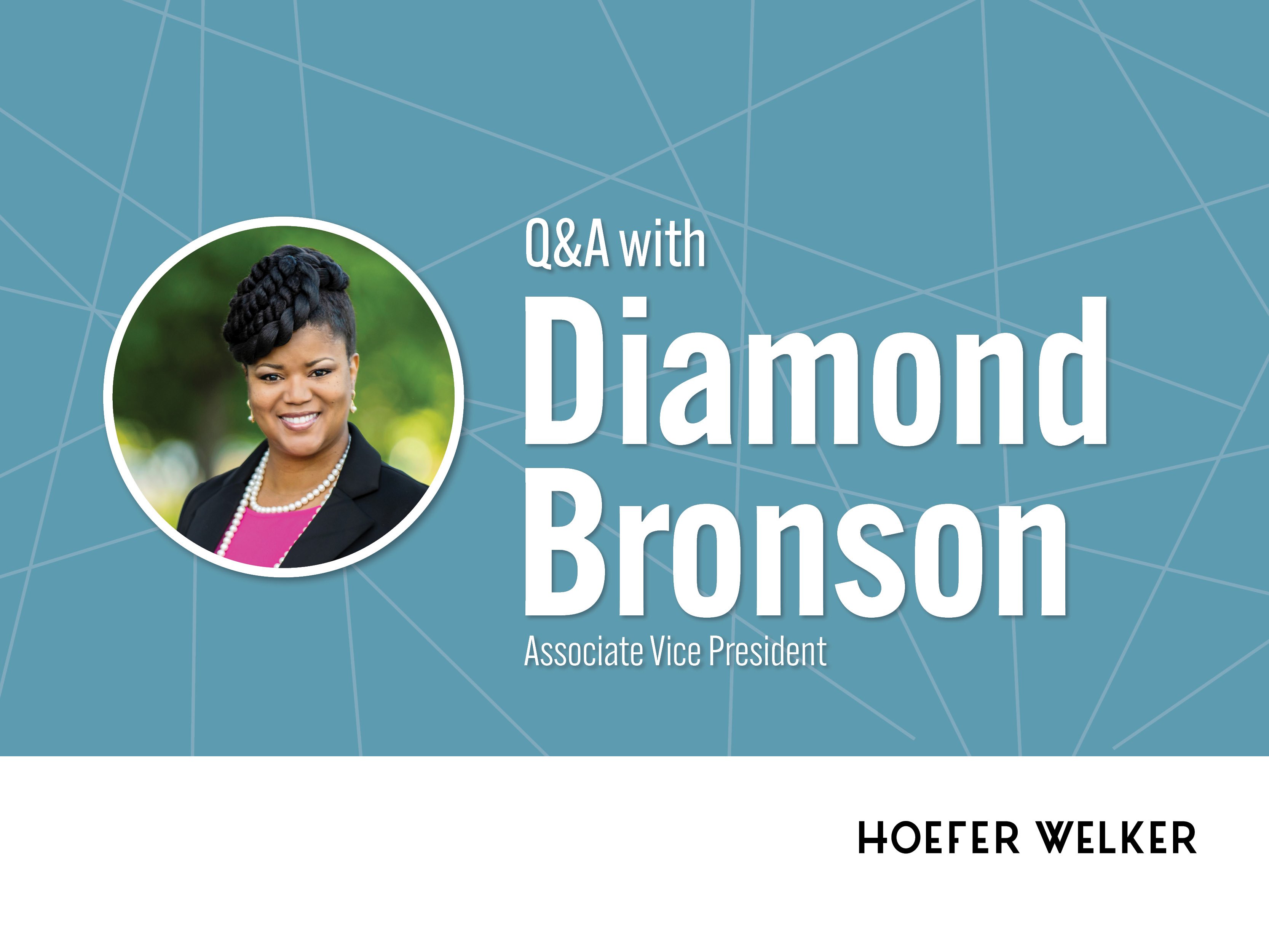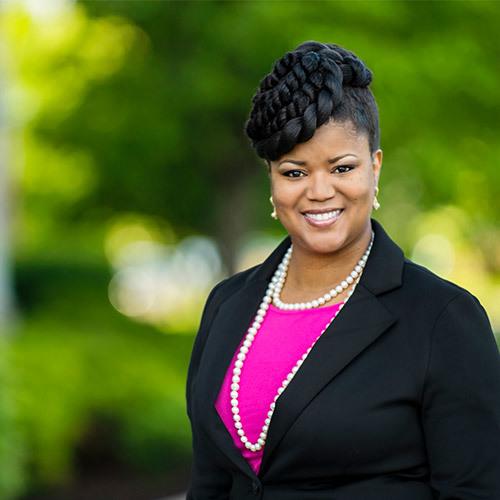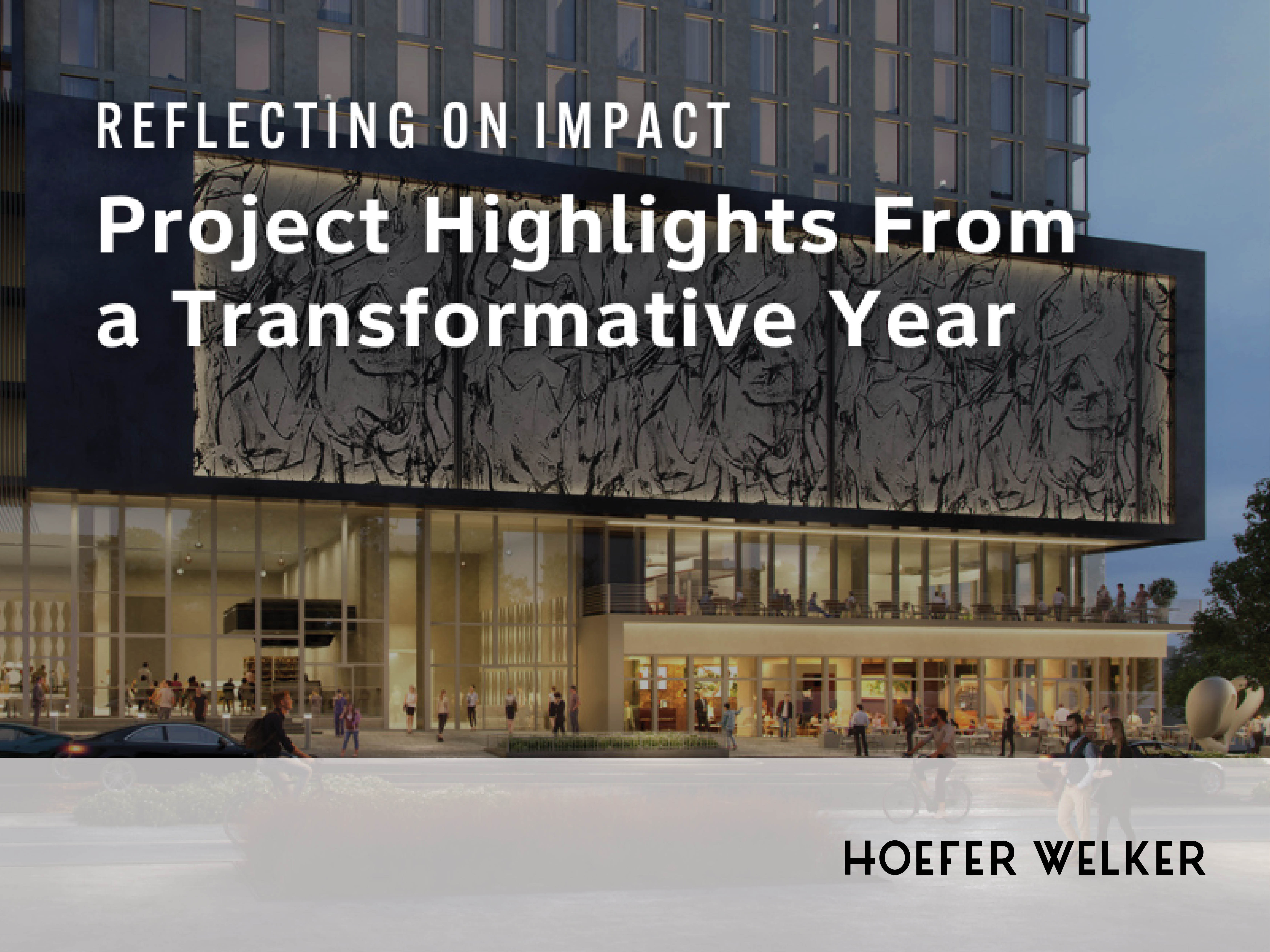Q&A with Diamond Bronson, Hoefer Welker Associate Vice President
Diversity, equity and inclusion (DE&I) and mentorship are pillars for success in high-performing workplaces, yet they can often be overlooked in the day-to-day hustle. In the second blog of our three-part series, we spoke with Diamond Bronson about the role mentorship, diversity, equity and inclusion play in professional growth and creating excellent work.
What does Diversity, Equity, Inclusion and Mentorship mean to you?
I believe equity must come first. We are all created equal, but we aren’t all treated equally. Once we get to a point where organizations and our industry as a whole treat people of different backgrounds the same way, diversity and inclusion will fall into place. To do that, we need to give people the opportunities that you yourself would want to have. Each of us has to make a conscious choice each day to do better, know our self-worth and be humble about the opportunities we have had so we can share those with others.
What is your approach to understanding the perspectives of your coworkers from different backgrounds?
Everyone has their own unique story. None are better or worse – just different. It takes humility and sincerity to want to learn about your coworkers. I devote my whole attention to understanding my peers and learning from their perspectives. Those experiences are so valuable and are crucial to everything we do when working together.
What are the most rewarding and challenging things about working in a large, diverse team?
Each individual brings something unique to our team. We can all learn from each other’s perspectives and experiences when we come to work each day and embrace the differences our team has to offer.
The most rewarding thing about working on our project teams is the preparedness and commitment of the team members to reach the intended result, no matter their background. It is inspiring to see each individual working toward a shared project goal.
The most challenging thing about working on a project team is balancing all the competing priorities. When we build our teams, we focus on finding people who have different skill sets, strengths, experiences, and backgrounds so we are prepared for whatever comes our way during a project. When we have diverse talent, we deliver amazing products for our clients.
Do you have a mentor or are you mentoring others?
I have many mentors, and I am a mentor to several people in our office, in our industry, and even outside our profession altogether.
When we build our teams, we focus on finding people who have different skill sets, strengths, experiences, and backgrounds so we are prepared for whatever comes our way during a project. When we have diverse talent, we deliver amazing products for our clients.
How did you connect with those individuals?
I approach all those relationships with sincerity, humility and honesty. I also make sure that my connections are personal and reciprocal. When I connect with a mentor or a mentee, we find common interests and goals, and then push one another to be better. Accountability is key in my relationships. Understanding and sharing when a person’s potential isn’t being met, as well as acknowledging professional and personal accomplishments, help fuel the fire in people.
Developing relationships doesn’t have to be a formal process all the time. Simple things like one-on-one conversations when passing by a mentor’s desk and giving introductions or congratulations are all a part of what makes meaningful mentor relationships.
What have those relationships taught you?
Walk by example. My mentors are people I look up to and have qualities I want to develop for my future. I hope to be that same example to any mentee that seeks me out.
Be curious. Ask questions and don’t be afraid of the answers. Growth doesn’t happen overnight. It takes time and work.
What benefits can mentor relationships provide for both mentors and mentees?
Mentorship is a vital part of professional growth. It’s a great way to help target career growth, increase self-confidence and help gain perspective from others. To benefit from your mentor, you must set the tone for what you want to learn early on and revisit those goals frequently.
What would you say to someone who is looking for a mentor?
Be curious. Ask questions, and don’t be afraid of the answers. Growth doesn’t happen overnight. It takes time and work. Mentors are an important resource for you throughout your career.
What organizations would you recommend for people to get involved in to help develop those mentor relationships?
Mentoring can be found anywhere and everywhere. I mentor within several organizations, including my church, my work, my sorority and my alma mater. I also mentor my friends and family. I recommend connecting with your network wherever you can find it. You never know what you might learn from a person. Get involved at your company, in industry professional organizations, and anywhere where you can learn from others.




